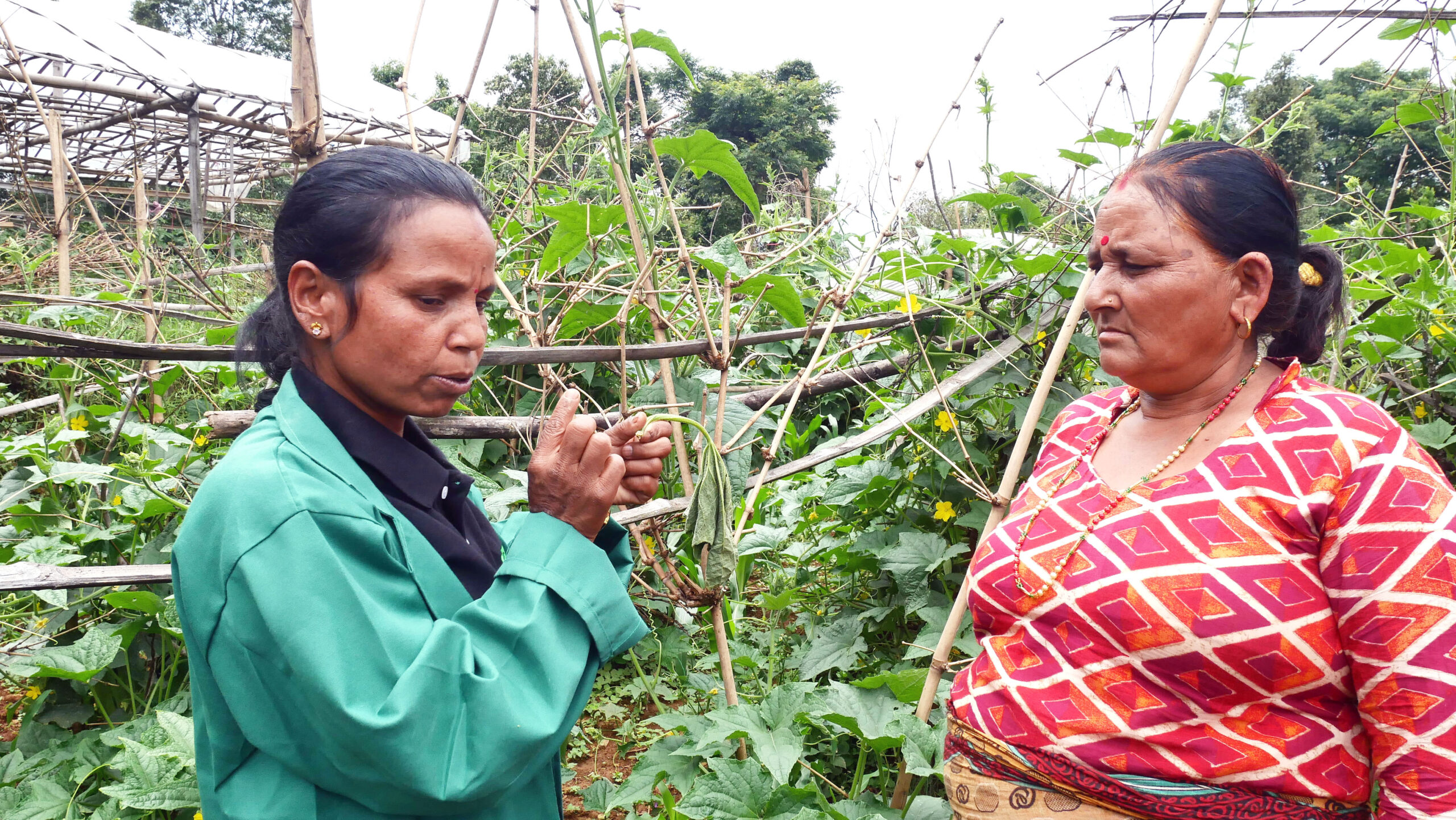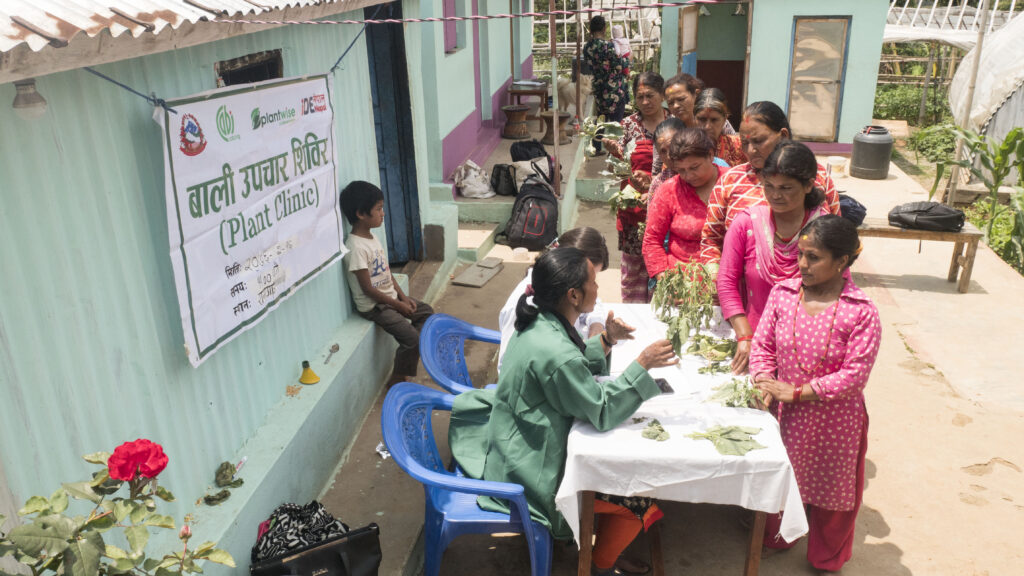Plant Doctors in Nepal

These doctors make house calls
Imagine being a farmer in Nepal. It’s a subsistence living at best, one you share with the majority of the country’s “working poor.” Your life depends on a good harvest, but you can’t count on it to feed your family when you’re constantly battling crop disease, invasive insects and erratic weather. Without technical know-how and support, you can fall back despite your hard work.
But help is on the way. A new iDE “Plant Doctor” program is furnishing these South Asian farmers with expertise and resources to get the most from their effort. With 80 per cent of rural Nepalese depending on agriculture for their livelihood, the potential impact of this initiative is huge.
Plant Doctors provide critical support at key points of the crop cycle.
They:
- assess plant health and spot the early threats of pests and disease so an effective strategy can be put in place;
- provide access to quality seed and fertilizer inputs as well as drip irrigation to maximize yields;
- equip farmers with weather-tracking skills to brace for extreme weather and other impacts related to climate change.

Samjhana Chaudhary & Rupa Thapa
Rupa Thapa lives in Ranagaun, Lapitpur. At 39, she is one of the program’s youngest plant doctors. Rupa works with 600 farmer households to evaluate plant health and provide access to quality seed, fertilizer, drip irrigation and safe bio-pesticides.
Many plant doctors are local women whose leadership and proven entrepreneurial skills align with iDE’s focus on creating prosperity by empowering people within the community. One recent success was to combat the Tuta moth, a new foe that attacks tomatoes and can shrink a crop by half. Her effective application of bio-pesticides took care of the Tuta pest and produced a crop that was healthy and undamaged.
Samjhana Chaudhary works with farmers in Gauriganga, Kailali District in western Nepal. She is a community business facilitator who sells climatesmart agricultural technologies and provides technical support to farmers. iDE
facilitated and supported a pilot program to train her as a plant doctor. As part of her new role she conducted a plant clinic last year for 24 farmers. She showed them how to investigate ailments of 40 different crops, including cauliflower, tomato, potato, chili and eggplant, and suggested appropriate solutions which paid off with better yields.
iDE Canada has an ambitious plan to train almost 300 new Plant Doctors like Rupa and Samjhana and create a committed network of community-based farm advisors who can reach 100,000 subsistence farmers. They will introduce new strategies and methods to minimize the shock of naturally occurring challenges and create a robust infrastructure supporting farm production and market access. The effect on the financial wellbeing of rural farmers, their communities and regional economies is expected to exceed $3.8 million.
This impact will be felt immediately as trained Plant Doctors move into communities with agronomic expertise and information.
Nepal’s subsistence farmers are wholly dependent on the success of their crops. But without improved farming services and technology, even a good harvest will not free them from the cycle of insecurity and uncertainty next season.
iDE Canada is determined to help Nepalese farmers break this cycle and embrace a better future. Investing in their lives will generate huge returns in the form of better education, access to health care, gender equity and a better standard of living for their families.
Nepal may be a world away, but Canadians can make a dent in farmers’ poverty by becoming part of a host community of four or more local “champions.” A host community can work with iDE Canada staff to recruit volunteers and donors to raise local targets of $330,000 through special events, direct appeals and locally-tailored initiatives.
Timely Traps
Last year Purna Bahadur Khattri lost 165 kg of tomatoes to the Tuta pest, a small worm that punctures the fruit with tiny holes, drains the juice and renders the fruit inedible. Left unchecked, it can wither vines and
obliterate tomato yields.
When the pest showed up in Nepal in 2016, iDE mobilized quickly to help farmers fight it. Now, Purna and other growers have learned how to conquer the pest with iDE’s Tuta traps, resulting in healthy vines of luscious pest-free tomatoes. This year Purna is on track to triple his tomato production. The additional earnings make it possible for him to send his children to school and make necessary repairs on his home.
